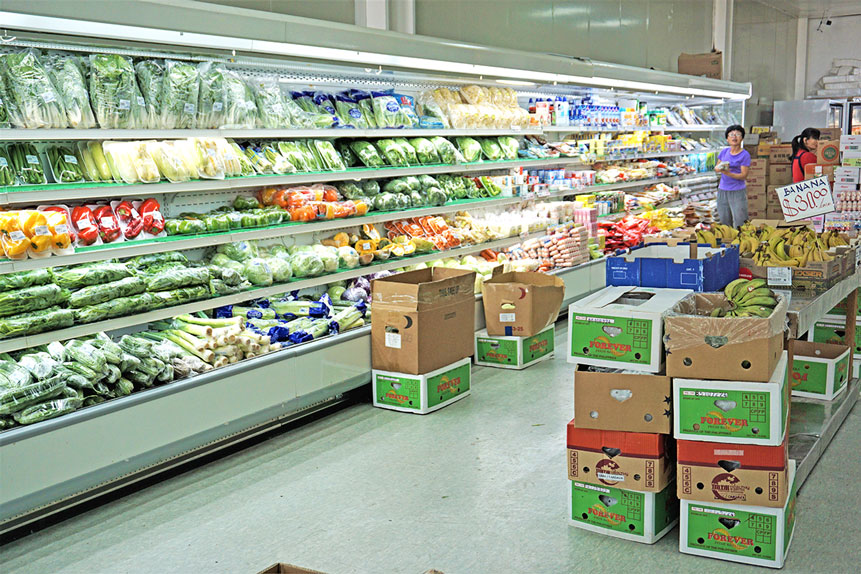Household spending up due to homebound families

Many consumers thinking about the health and wellbeing of their families stock up on fresh fruits and vegetables amid the COVID-19 outbreak. (Bea Cabrera)
A tube of toothpaste, which used to last Margie about three weeks to use up, now lasts just a week.
Since seven days ago, she has had to replenish their bath soap twice already.
And she has been making extra runs to the local deli to buy bread and peanut butter because a jar of jelly seem to go half-empty in just three days. That same jar used to last at least a week.
“With my children at home and my husband and I having limited hours at work, we have had to spend more because my husband and I used to get free meals at work and our kids get free meals in school,” said Margie (not her real name), 42, of As Lito.
This increased amount of expenditures doesn’t seem to be a unique thing for Margie’s household and is being replicated across many in the Marianas. With the COVID-19 concerns and pursuant to Gov. Ralph Torres call for the community to stay home, CNMI consumers are increasing their spending habits in stocking up.
According to a cashier at a grocery in Capital Hill, the influx of customers poured in immediately after confirmed COVID-19 cases in Guam were reported, followed by Torres putting the CNMI under Public Health Emergency last week. “It has been pretty busy as people come in and out. There is never a lull moment in the store the past few days because people are getting ready and stocking up on basic necessities,” she said.
“I don’t think people are panic buying as everyone is calm when they in the store. No one ever fought over toilet paper like what we see on the internet. The difference is they are just getting more than they usually get. I know some of the customers and I noticed that, instead of getting one bag of rice for the week, they get three,” she added.
Ajani S. Burrell, an assistant professor at Northern Marianas College, said that his family’s expenditures on groceries went up 50%. “…This is not because of price increases but because we wanted to purchase a little extra food due to the uncertainty surrounding the virus and responses to it. We are thankful that it appears businesses have not raised their prices, and we hope supply chains can remain largely consistent and prices can stay as they were before the pandemic,” he said.
“Our priorities include fresh fruits and vegetables; household cleaning and sanitation products as well. Unfortunately, it seems that some items, like hand-sanitizers and rubbing alcohol are completely unavailable on island,” he added.
A government employee from Gualo Rai said that the current situation is hitting his family hard. “Our spending on groceries is based on our biweekly paychecks. …The break from work is definitely a loss. …It is even more worrisome for my elderly parents since I know the fatality rate among the more vulnerable people is higher,” he said.
“However, I see the spending as more of an investment toward preventing the risk of getting COVID-19. …The same priorities on grocery items remain unchanged, but if anything, we added more fresh fruits on our list,” he added.
A mother from San Vicente said that she considers losing her job last December a blessing, considering that she can now stay home and take care of her child and husband. “When I lost my job, I started to be cautious of our spending, even if my husband has a good job that could sustain our lifestyle. …I have always believed in not spending beyond our means and the importance of saving on rainy days,” she said.
“For our groceries, we still purchase the same amount every payday as it has been our habit to buy necessities like butane, dog food, etc., even if we still have a good stock at home. This practice helps us not to panic buy,” she added.
Burnell said that he and his family are actually spending a little less than what they usually do. “There’s less to spend money on since so few businesses are currently open for patronage. That said, we are spending more money on other things, like materials for home improvement projects since we are largely homebound,” he said.
“I don’t think about or lament the fact that we are spending this money because it seems necessary. That said, we would obviously much rather spend money on things other than bleach or Lysol wipes. On balance, I guess I would say I see it more as an investment in our health rather than a loss,” he added.























